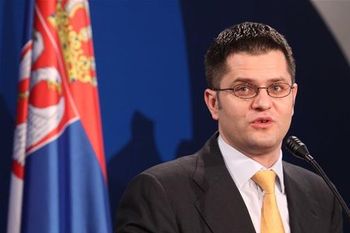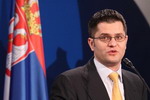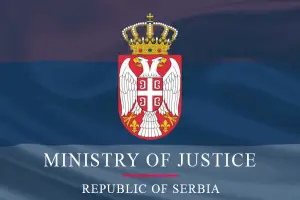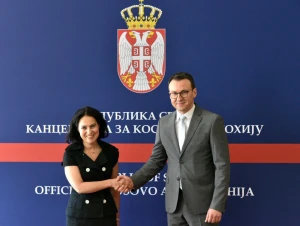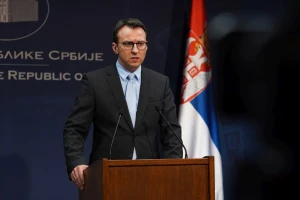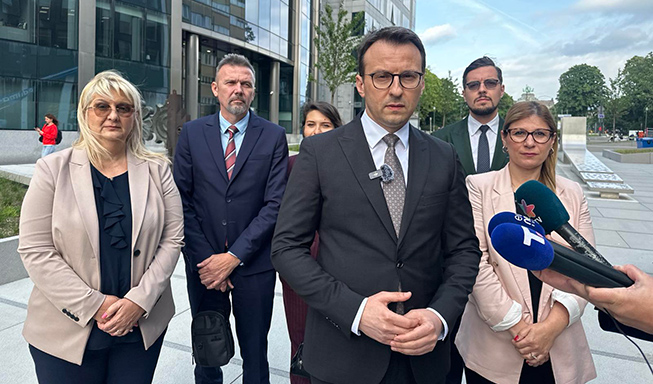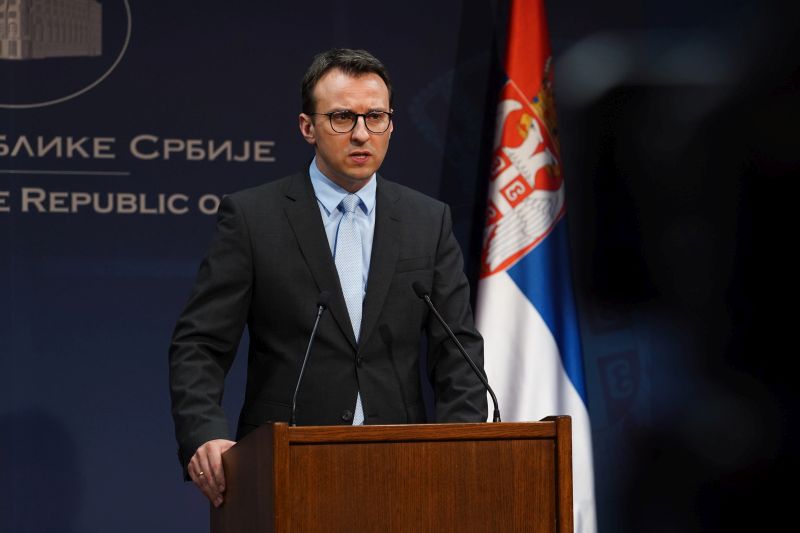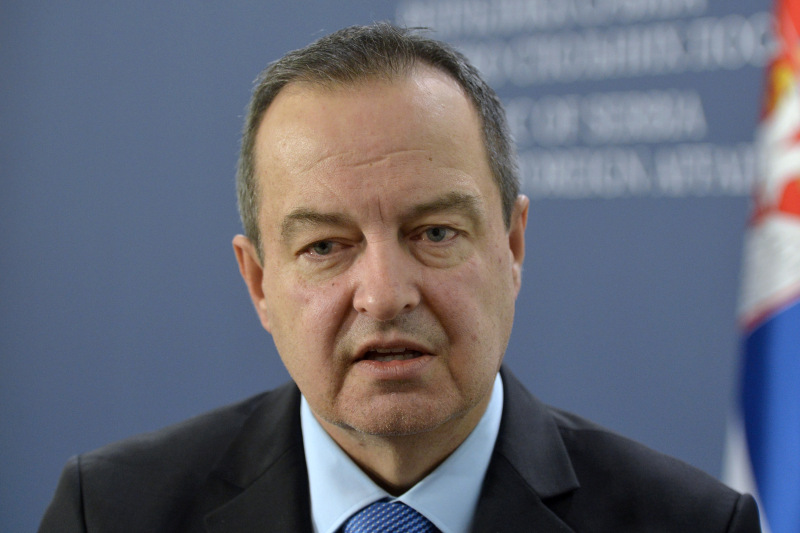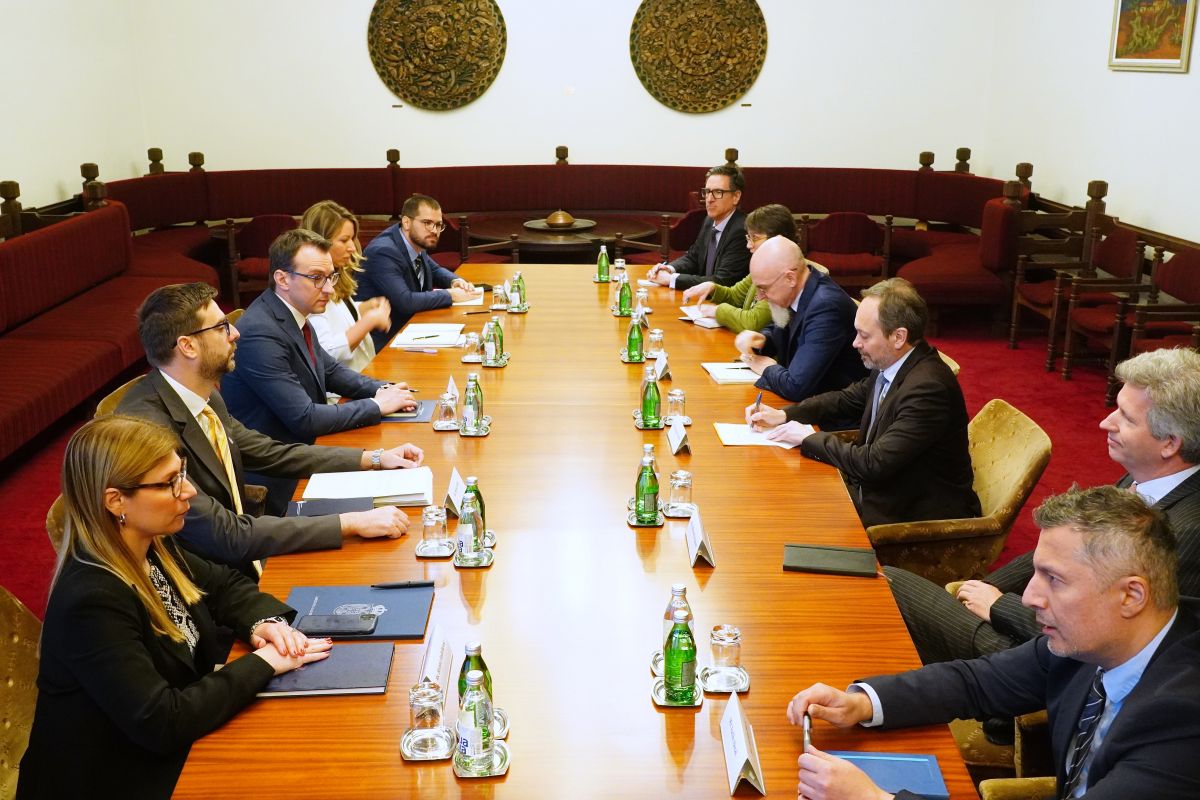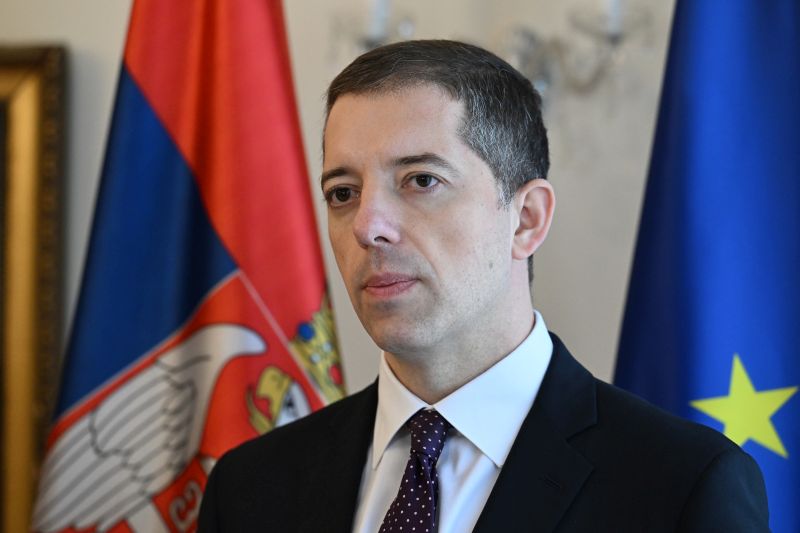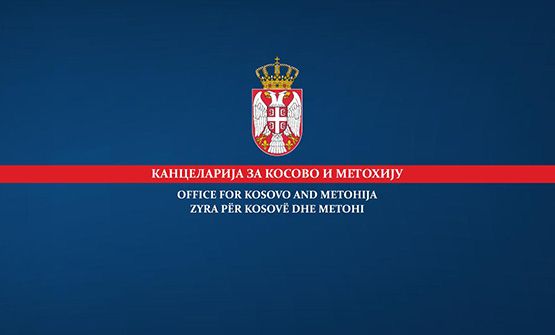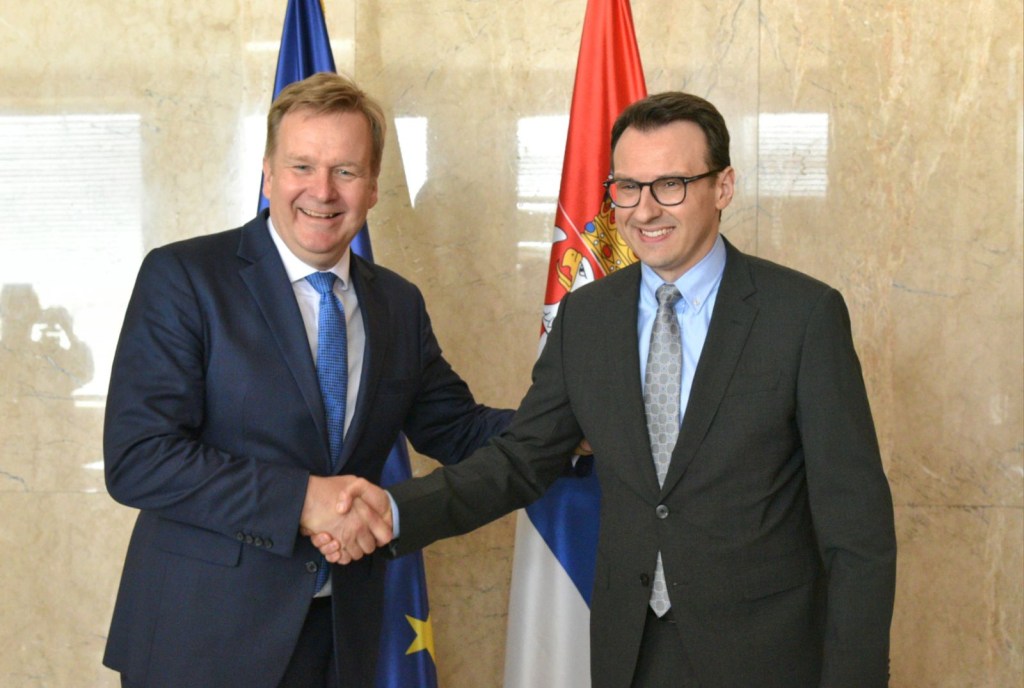Q:
A:
Intimidation of Serbian population in Kosovo must be stopped
New York/Belgrade,
14 May 2012
Minister of Foreign Affairs Vuk Jeremic warned today at a session of the UN Security Council that the campaign of intimidation of Serbs in Kosovo-Metohija continues.
Speaking at the session dedicated to the situation in Kosovo-Metohija, Jeremic underlined that in the first quarter of 2012 more than 180 attacks on Serbs, their property and religious buildings were recorded.
He stated that this explains a continuous reduction in the number of returnees to Kosovo-Metohija, which is stated in the regular quarterly report of UN Secretary General Ban Ki-moon, which covers the period from February to May 2012.
The Minister said that Serbia shares the fears of the UN Secretary General that the space for dialogue between Belgrade and Pristina might be additionally reduced within the next few months if peace is not maintained.
We share the fears of the Secretary-General, especially since it seems that the public opinion of ethnic Albanians becomes increasingly hostile towards the continuation of any negotiations, Jeremic said.
However, Serbia remains completely devoted to the negotiations, he underlined and added that the disagreement over the status should not prevent the ability of the two parties to work together in resolving practical issues.
According to him, there is still much to be done on improving the lives of people in the province through negotiations conducted in good faith.
He commended the efforts of UNMIK chief Farid Zarif and OSCE Secretary General Lamberto Zannier to enable the Serbs to vote in presidential and parliamentary elections in Kosovo-Metohija.
The Minister also thanked the commander of KFOR, General Erhard Drews, for having ordered the arrival of thousands of additional troops to the province in order to avert the threats of violence againts holding the elections.
He underlined that Serbia believes that the UNMIK is important for peace and stability in Kosovo-Metohija and that he agrees with the assessment of the Secretary General that the activities of the international missions on the ground within the framework of the UN and UN Security Council Resolution 1244 must be strategically harmonised and closely coordinated, which entails the reconfiguration of EULEX.
Our position on the EU's engagement in Kosovo remains unchanged. We believe that the EU should continue its status-neutral efforts to create an environment that is missing and improve social conditions in the province, Jeremic said.
Jeremic pointed out that eight years since the 17 March 2004 pogrom against the Serbs in Kosovo, when more than 35 churches and monasteries were damaged or destroyed, the desecration of Orthodox monasteries and cemeteries still continues.
He said that no one has been arrested for the execution of hate crimes in places that are the essence of Serbian national identity, and no high officials of ethnic Albanians have condemned those acts.
He stressed that Serbia remains seriously concerned about allegations on illegal trade in human organs in Kosovo presented in the report of the Council of Europe in December 2010.
He said that the UN Secretary General's report states that a special team of EULEX continues to develop its capacity and that it has made progress on this case.
However, we believe that the lack of transparency in the implementation of investigation should be an issue of serious concern in this body, the Minister said, adding that the discovery of the full truth for these monstrous accusations, so far unseen in the history of war, must remain a top priority.
Jeremic expressed his regret over the acquittal for former KLA commander Fatmir Limaj for the war crime and murders and tortures of Serbs in 1999.
This verdict legitimately raised the question of whether the Kosovo courts would ever condemn someone for war crimes against the Serbs, Jeremic said, adding that it is encouraging that the EULEX special prosecutor's office announced it would file an appeal against the verdict.
He stated that this explains a continuous reduction in the number of returnees to Kosovo-Metohija, which is stated in the regular quarterly report of UN Secretary General Ban Ki-moon, which covers the period from February to May 2012.
The Minister said that Serbia shares the fears of the UN Secretary General that the space for dialogue between Belgrade and Pristina might be additionally reduced within the next few months if peace is not maintained.
We share the fears of the Secretary-General, especially since it seems that the public opinion of ethnic Albanians becomes increasingly hostile towards the continuation of any negotiations, Jeremic said.
However, Serbia remains completely devoted to the negotiations, he underlined and added that the disagreement over the status should not prevent the ability of the two parties to work together in resolving practical issues.
According to him, there is still much to be done on improving the lives of people in the province through negotiations conducted in good faith.
He commended the efforts of UNMIK chief Farid Zarif and OSCE Secretary General Lamberto Zannier to enable the Serbs to vote in presidential and parliamentary elections in Kosovo-Metohija.
The Minister also thanked the commander of KFOR, General Erhard Drews, for having ordered the arrival of thousands of additional troops to the province in order to avert the threats of violence againts holding the elections.
He underlined that Serbia believes that the UNMIK is important for peace and stability in Kosovo-Metohija and that he agrees with the assessment of the Secretary General that the activities of the international missions on the ground within the framework of the UN and UN Security Council Resolution 1244 must be strategically harmonised and closely coordinated, which entails the reconfiguration of EULEX.
Our position on the EU's engagement in Kosovo remains unchanged. We believe that the EU should continue its status-neutral efforts to create an environment that is missing and improve social conditions in the province, Jeremic said.
Jeremic pointed out that eight years since the 17 March 2004 pogrom against the Serbs in Kosovo, when more than 35 churches and monasteries were damaged or destroyed, the desecration of Orthodox monasteries and cemeteries still continues.
He said that no one has been arrested for the execution of hate crimes in places that are the essence of Serbian national identity, and no high officials of ethnic Albanians have condemned those acts.
He stressed that Serbia remains seriously concerned about allegations on illegal trade in human organs in Kosovo presented in the report of the Council of Europe in December 2010.
He said that the UN Secretary General's report states that a special team of EULEX continues to develop its capacity and that it has made progress on this case.
However, we believe that the lack of transparency in the implementation of investigation should be an issue of serious concern in this body, the Minister said, adding that the discovery of the full truth for these monstrous accusations, so far unseen in the history of war, must remain a top priority.
Jeremic expressed his regret over the acquittal for former KLA commander Fatmir Limaj for the war crime and murders and tortures of Serbs in 1999.
This verdict legitimately raised the question of whether the Kosovo courts would ever condemn someone for war crimes against the Serbs, Jeremic said, adding that it is encouraging that the EULEX special prosecutor's office announced it would file an appeal against the verdict.

